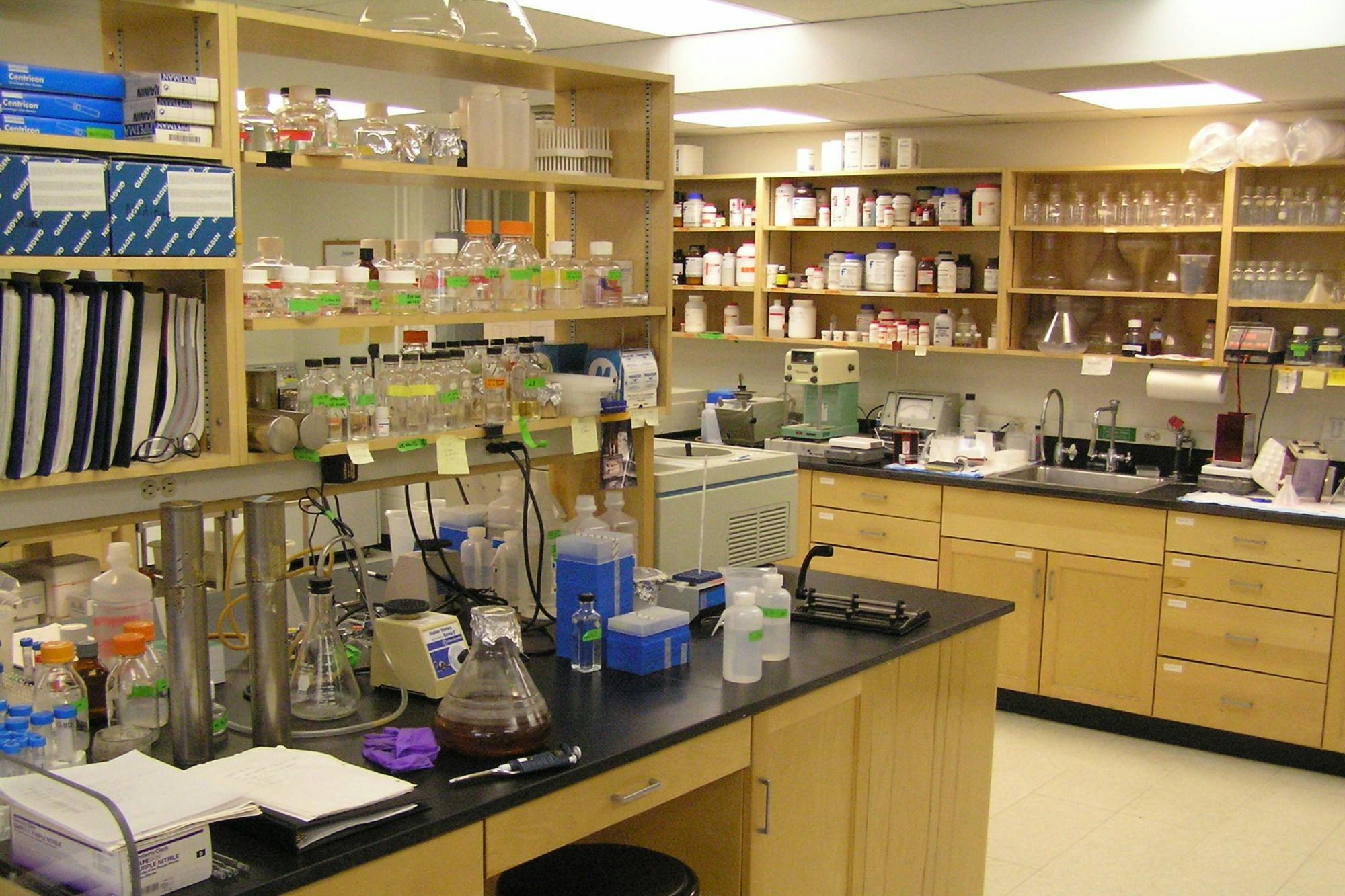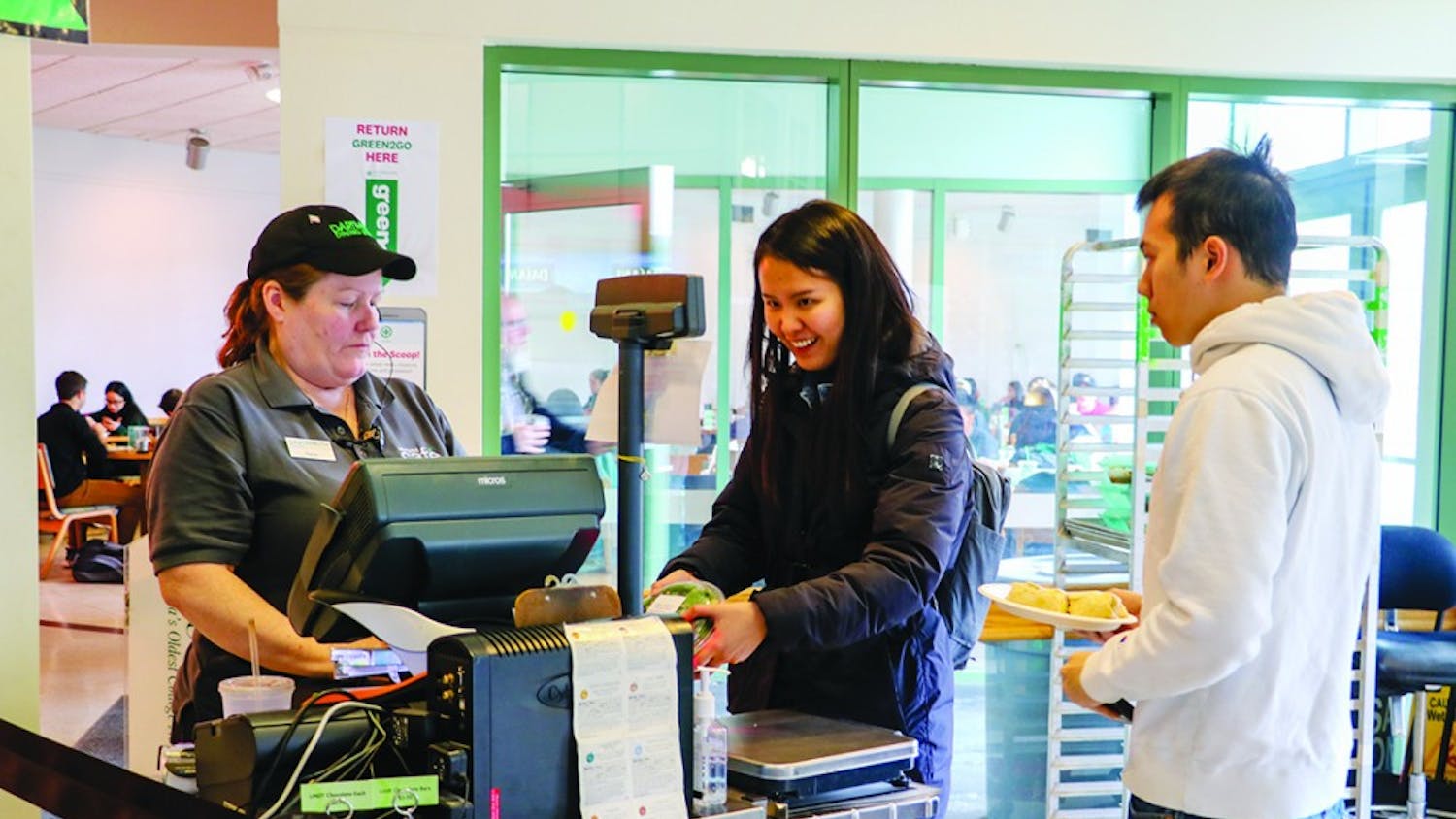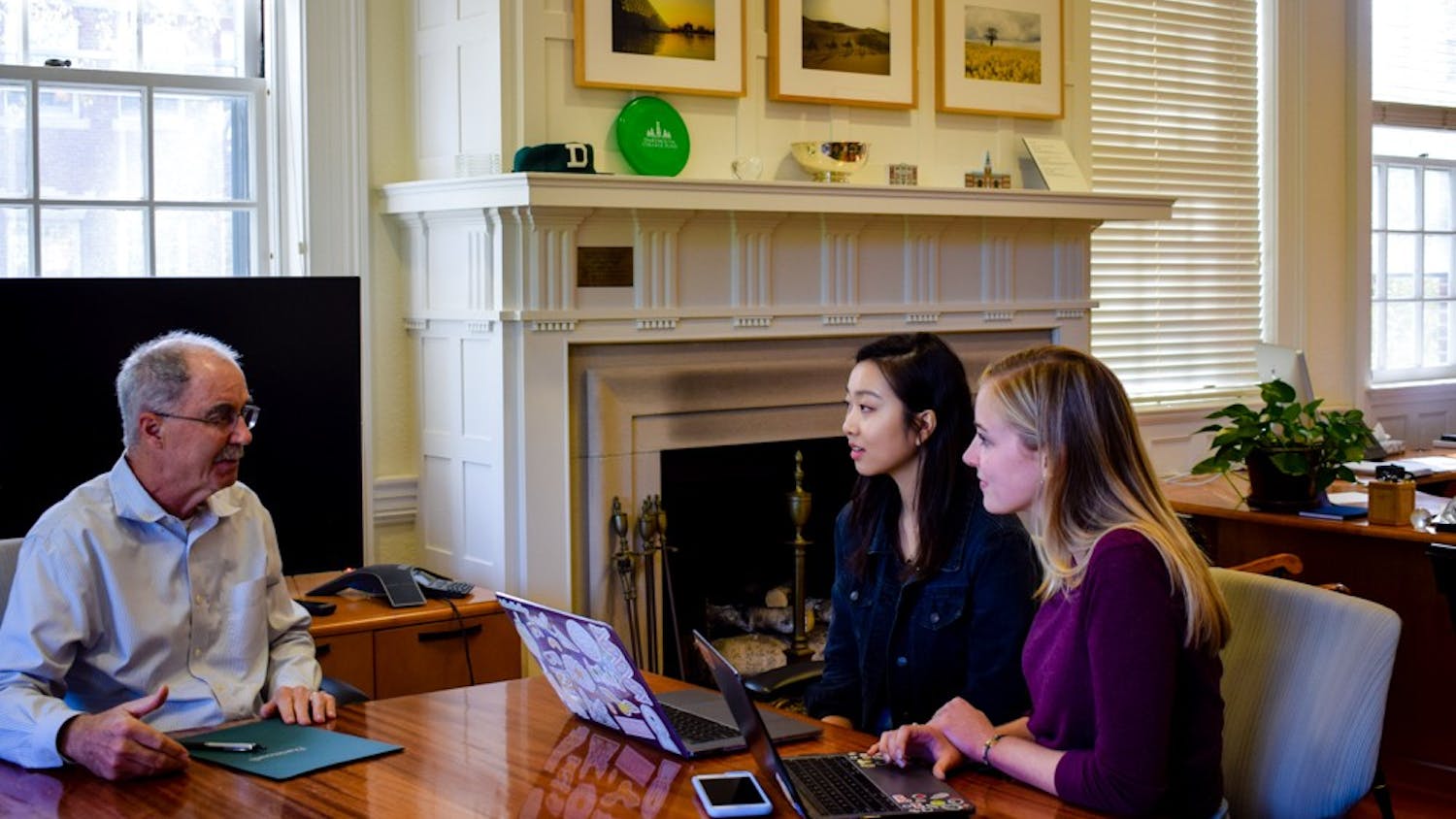While Dartmouth has decided to pause on-campus research activities during the COVID-19 crisis, some researchers have been granted limited access to laboratories to continue projects that are time-sensitive or involve animal subjects.
On March 17, provost Joseph Helble announced that Dartmouth had decided to “ramp-down” all on-campus research activities starting March 23. In a follow-up email the same day, vice provost for research and institutional official for human subjects Dean Madden explained that researchers could apply for an exemption for on-campus laboratory work through the dean of their respective school on a case-by-case basis.
According to institutional animal care and use committee member and Geisel School of Medicine surgery professor P. Jack Hoopes, only one person per lab can work on a project at any one time, and around 30 to 35 researchers have been granted access to laboratories this term.
“Dartmouth understood it would have been a tremendous loss to stop those experiments in the middle,” Hoopes said. “We wanted to keep those experiments going as much as we could.”
Biology professor Celia Chen said that her lab, which works with small aquatic organisms called amphipods, was granted an exception in mid-March.
“If I wouldn't have been allowed to come in, I would have had to throw away these cultures that [would take] at least another year to get them running again,” she said. “It would be a lot of loss of time and resources.”
According to Hoopes, Dartmouth currently has 15,000 to 20,000 mice and a small number of rats, voles, fish and octopuses across the Vail Medical Sciences Building at Geisel, Moore Hall and two buildings on the Dartmouth-Hitchcock Medical Center campus.
“We absolutely have not had to euthanize any animals,” Hoopes said.
Instead, Hoopes said that researchers were advised to finish their experiments and not to order any new animals in anticipation of the lab shutdown.
Hoopes said that 18 staff members in the animal care and use program are currently in charge of taking care of the animals. Two office personnel work remotely, while three veterinarians and 13 animal care technicians visit Dartmouth facilities daily.
“Researchers can still interact with their animals, but the animal care technicians are in charge of all the husbandry work, such as feeding and cage changes,” Hoopes added.
To ensure the health and safety of staff members who take care of lab animals, Hoopes said that technicians are divided into two teams that work at alternate hours and in alternate facilities to decrease the likelihood of infection.
“Every day when they come in, they are given a new mask, and their temperatures are checked,” Hoopes said. “So far, nobody has been infected.”
Geisel microbiology and immunology professor Mary Jo Turk said that her lab terminated a quarter of its experiments due to COVID-19. She added that her research focuses on understanding long-lived immune responses to cancer, and though she has not been able to work with human subjects during the research pause, she has continued limited work with mice.
“We have mouse colonies that don't exist anywhere else in the world, and these mice need to be maintained,” Turk said.
Jichang Han, a third-year graduate student in Turk’s lab, said that while he has been able to write a paper based on data that he collected before the ramp-down, he feels sorry for graduate students who may not be able to continue research as normal.
“For first-year graduate students who are rotating in different labs to find a best fit, they can no longer join a new lab from March to May as before and do experiments,” Han said. “But for second year students, they can be focused on writing a proposal and preparing for their oral defense.”
The lab shutdown has also impacted researchers’ ability to apply for future research opportunities.
“The situation affects our ability to write and compete for grants going forward because we need to generate pilot data to show that our proposed science is likely to have success, and it's hard to do that right now,” Chen said.
Nevertheless, the COVID-19 pandemic has spurred new research interests among Dartmouth faculty. For example, Hoopes said that he has just submitted a protocol to treat COVID-19 patients with radiation. Though his proposal has not been approved yet, Hoopes said that he expects the application process for COVID-19-related projects to be much faster than before.




